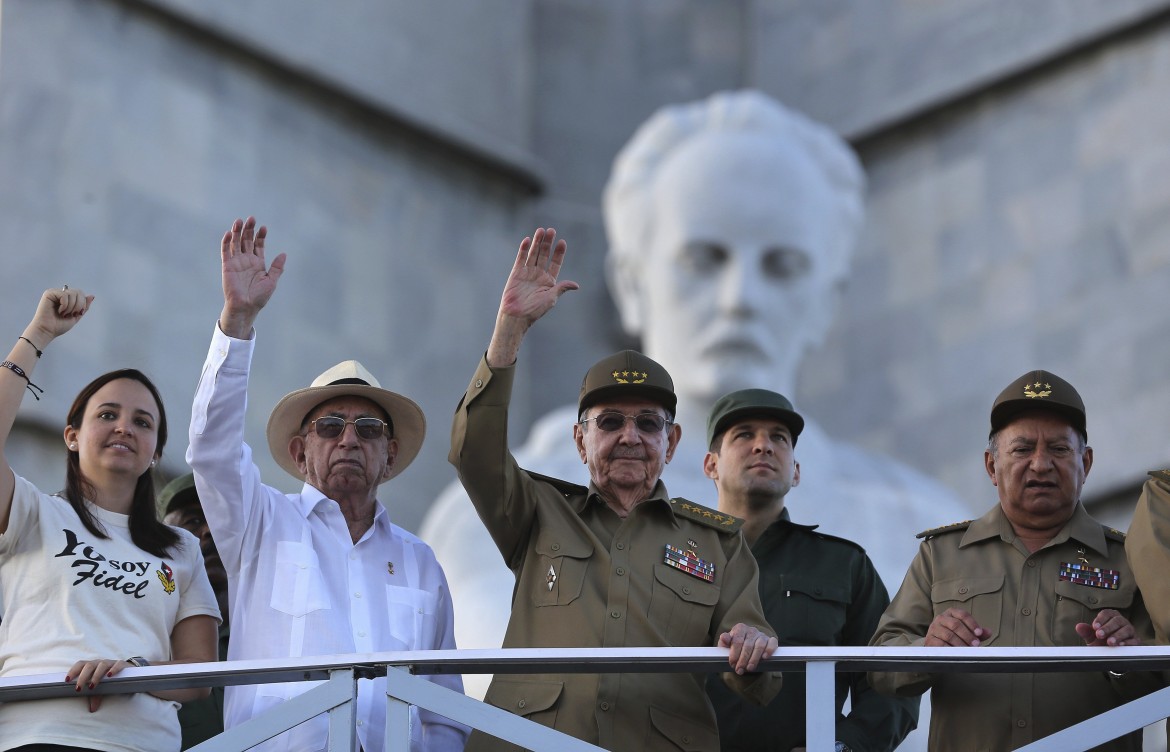Reportage
Cuba will follow Chinese model post-Castro
The legislature’s decision to introduce free market elements but assert the supremacy of party over state is a clear nod to the Chinese Communist Party.

Cuba will stay socialist and the Communist Party will continue to play the role of a “force superior to society and the state.”
After two days of extraordinary debate at the National Assembly of People’s Power (Parliament) on Thursday, President Raúl Castro has made it clear that the generational change planned for early next year, when he leaves the presidency, will not result in political and constitutional changes. The economic and social line (in the Development Plan until 2030) will remain one of the reforms in order to create “a prosperous and sustainable socialism,” and the Communist Party will remain the only party.
According to some analysts, this political decision explicitly looks to the “Chinese model”: an introduction of market elements, but under strict control of the state and of the Communist Party, which is the only political force.
Indeed, in some ways the socialist choices announced by the Cuban government seem more radical, because the “czar” of economic reforms, Murillo, confirmed that every form of concentration of property and wealth will be “adjusted,” so that “there is no opposition to the principles of our socialism.” Castro said that on this basis, “everything that must be changed will be changed.”
The debate in the Cuban parliament on the future of the country came after a wide public consultation, which involved 1.6 million (mostly members of the party and of the various grassroots organizations). This consultation was deemed necessary because at the beginning of 2018, there will be no more Castros atop the government (Mariela, the youngest daughter of the president, said so to the BBC) and also because for several weeks there have been “advances” from the United States that President Donald Trump intends to review the policy of rapprochement to the island initiated by Obama in December 2014, by imposing new restrictions. The rumors were confirmed by the White House spokesman and it was announced that the new guidelines will be announced by the president by June, when Trump will make a visit to Miami, a bastion of Republican and Democrat politicians of Cuban origin and hostile “to the Castro’s dictatorship.”
Meanwhile, it has been leaked that diplomatic relations will not be broken off but a ban on commercial relations with the Cuban Armed Forces (the FAR, which control almost 80 percent of the island’s economy) will be put in place and that travel restrictions on U.S. citizens to Cuba will be reintroduced. These would be harsh measures against the Cuban government, which is experiencing a serious economic crisis, in line with Trump’s statements last month that “the Cuban people deserve a government that upholds democratic values, economic and religious freedom and human rights.” In short, a return to the government changing policy whose basic arguments were described as “ridiculous” and dangerous by Castro.
After Trump’s recent decision to withdraw from the Paris Agreement on climate change and after the clear door shut in the face of Europe, nobody on the island doubts that the head of the White House is seriously prioritizing the “demands” of domestic policy over international alliances. This is why the mass Cuban media have been using harsher language (“Trump’s doorslam to the Paris Agreement isolates him from the world” was Saturday’s headline in Juventud Rebelde, the Communist Youth newspaper), breaking a sort of truce that lasted until last month. There is no doubt, therefore, that relations will be more strained.
But in a recent debate dedicated to the island’s relations with the U.S. organized by Temas, the magazine considered liberal, some analysts have argued that both sides will maintain a pragmatic line that could serve as a counterweight to the hardening of political overtones. “Engage Cuba,” an association of entrepreneurs and U.S. politicians favorable to the continuation of Obama’s policy, announced that if Trump reverses the policy, it would cause a loss of $6.5 billion and 12,200 jobs to the U.S. economy.
Also, last week, 54 U.S. Senators signed a bill that puts an end to all restrictions on travel to Cuba for U.S. citizens. Trump can hardly ignore it. Not only that, the cuts in the federal budget proposed by Trump include cuts to “development aid” intended for various Latin American countries. In the case of Cuba, it would be a cut of $20 million (according to 2016 data) officially intended to “promote democracy” in Cuba but in fact, according to former Ambassador Farrar, these funds have been used “to feed the main opposition organizations” to the government.
Originally published at https://ilmanifesto.it/cuba-per-leconomia-una-linea-cinese-nel-dopo-raul-castro/ on 2017-06-04
